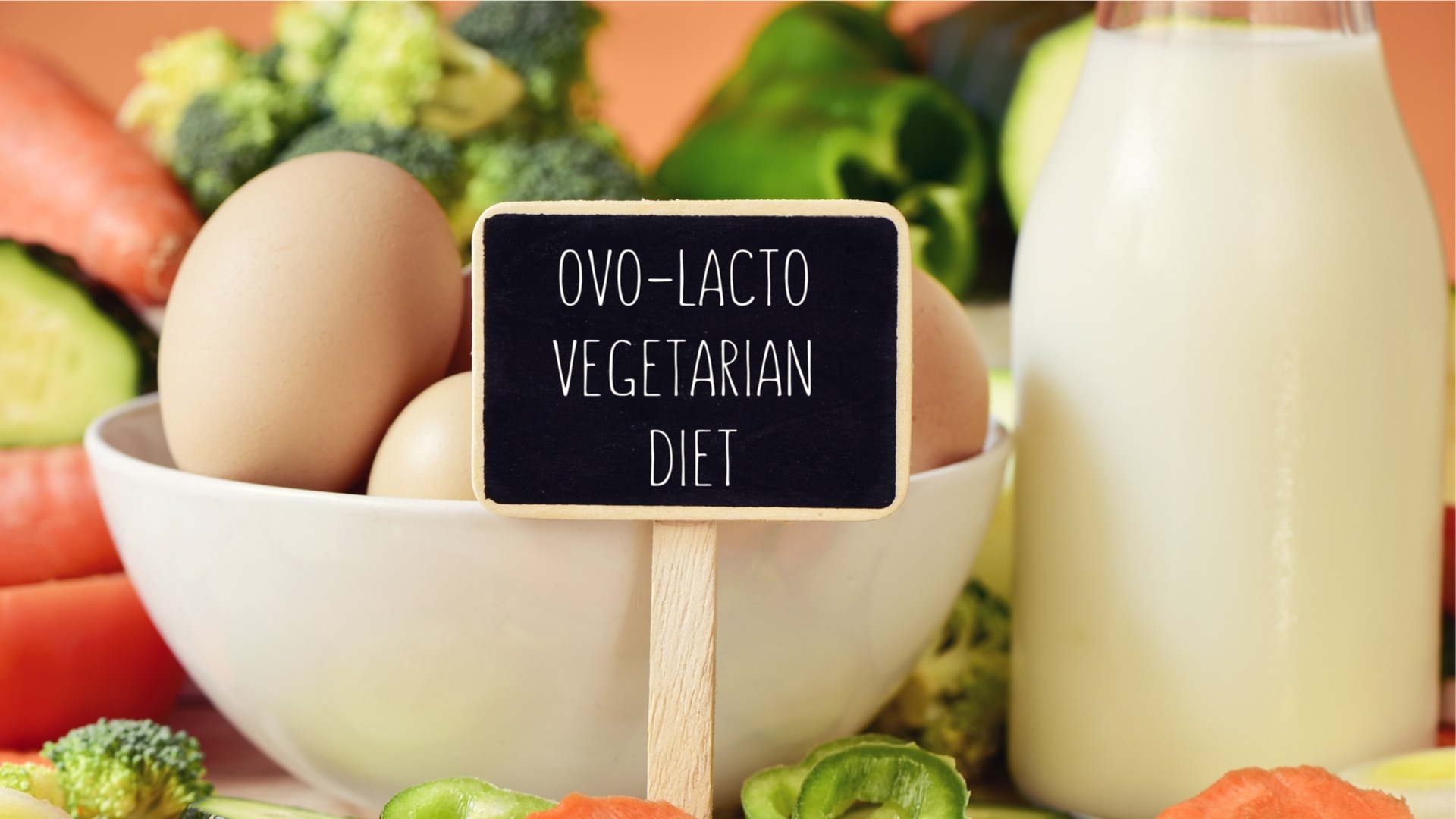Lacto ovo vegetarian vs vegan – Embark on a culinary exploration of lacto-ovo vegetarianism and veganism, uncovering their nutritional profiles, health implications, environmental impact, ethical considerations, and practical implementation. This comprehensive guide delves into the nuances of each diet, empowering you to make informed choices that align with your values and lifestyle.
Nutritional Comparison
A lacto-ovo vegetarian diet excludes meat, poultry, fish, and seafood, but allows dairy products and eggs. A vegan diet excludes all animal products, including dairy, eggs, and honey.
Both lacto-ovo vegetarian and vegan diets can be healthy and provide all the essential nutrients, but there are some key differences in their nutritional profiles.
Macronutrients
Lacto-ovo vegetarian diets tend to be higher in protein than vegan diets, due to the inclusion of dairy products and eggs. However, both diets can provide adequate protein with careful planning.
Lacto-ovo vegetarian diets are also higher in fat than vegan diets, due to the inclusion of dairy products. However, both diets can provide healthy fats with careful planning.
Carbohydrates are the main source of energy for both lacto-ovo vegetarian and vegan diets. Both diets can provide adequate carbohydrates with careful planning.
Micronutrients
Lacto-ovo vegetarian diets are generally good sources of most micronutrients, including iron, calcium, and vitamin B12. However, vegans need to be careful to get enough of these nutrients, as they are not found in plant foods.
Vegans need to supplement with vitamin B12, as it is not found in plant foods. They may also need to supplement with iron and calcium, as these nutrients are less well-absorbed from plant foods than from animal foods.
Essential Vitamins and Minerals
The following table compares the nutritional profiles of lacto-ovo vegetarian and vegan diets:
| Nutrient | Lacto-ovo vegetarian diet | Vegan diet |
|---|---|---|
| Protein | Adequate with careful planning | Adequate with careful planning |
| Fat | Higher than vegan diets | Lower than lacto-ovo vegetarian diets |
| Carbohydrates | Adequate with careful planning | Adequate with careful planning |
| Iron | Good source | Lower than lacto-ovo vegetarian diets, may need to supplement |
| Calcium | Good source | Lower than lacto-ovo vegetarian diets, may need to supplement |
| Vitamin B12 | Good source | Not found in plant foods, must supplement |
Health Benefits and Risks
Both lacto-ovo vegetarian and vegan diets offer potential health benefits, but they also come with certain risks and nutritional considerations.
Lacto-ovo vegetarians may have a reduced risk of chronic diseases such as heart disease, stroke, type 2 diabetes, and some types of cancer. This is likely due to the high intake of fruits, vegetables, and whole grains, which are all rich in antioxidants, fiber, and other protective compounds.
Obtain recommendations related to center console boat parts that can assist you today.
Lacto-Ovo Vegetarian Diet
- Reduced risk of chronic diseases:As mentioned above, lacto-ovo vegetarians have a lower risk of developing heart disease, stroke, type 2 diabetes, and some types of cancer.
- Improved cardiovascular health:The high intake of fruits, vegetables, and whole grains in a lacto-ovo vegetarian diet can help to lower blood pressure, improve cholesterol levels, and reduce the risk of heart disease.
- Reduced risk of some types of cancer:Studies have shown that lacto-ovo vegetarians have a lower risk of developing certain types of cancer, such as colon cancer, prostate cancer, and breast cancer.
Vegan Diet
- Reduced risk of chronic diseases:Similar to lacto-ovo vegetarians, vegans also have a lower risk of developing chronic diseases such as heart disease, stroke, type 2 diabetes, and some types of cancer.
- Improved cardiovascular health:The high intake of fruits, vegetables, and whole grains in a vegan diet can help to lower blood pressure, improve cholesterol levels, and reduce the risk of heart disease.
- Reduced risk of some types of cancer:Studies have shown that vegans have a lower risk of developing certain types of cancer, such as colon cancer, prostate cancer, and breast cancer.
However, both lacto-ovo vegetarian and vegan diets can also be associated with certain nutritional deficiencies and health risks. For example, vegans may be at risk for vitamin B12 deficiency, which can lead to anemia and nerve damage. They may also be at risk for iron deficiency, which can lead to fatigue and weakness.
Environmental Impact: Lacto Ovo Vegetarian Vs Vegan
Lacto-ovo vegetarian and vegan diets both have a lower environmental impact compared to meat-based diets. However, there are differences in the environmental impact of each diet.
In general, vegan diets have a lower environmental impact than lacto-ovo vegetarian diets. This is because the production of animal products, such as dairy and eggs, requires more resources and generates more greenhouse gases than the production of plant-based foods.
Carbon Footprint
The carbon footprint of a diet is a measure of the amount of greenhouse gases that are produced as a result of producing and consuming the food. The carbon footprint of a vegan diet is typically lower than the carbon footprint of a lacto-ovo vegetarian diet.
This is because the production of animal products generates more greenhouse gases than the production of plant-based foods.
Water Usage
The water footprint of a diet is a measure of the amount of water that is used to produce and consume the food. The water footprint of a vegan diet is typically lower than the water footprint of a lacto-ovo vegetarian diet.
Examine how pescatarian paleo diet can boost performance in your area.
This is because the production of animal products requires more water than the production of plant-based foods.
Land Use
The land use of a diet is a measure of the amount of land that is required to produce and consume the food. The land use of a vegan diet is typically lower than the land use of a lacto-ovo vegetarian diet.
This is because the production of animal products requires more land than the production of plant-based foods.
Ethical Considerations
The consumption of animal products versus plant-based foods raises ethical concerns regarding the treatment and exploitation of animals. Lacto-ovo vegetarians exclude meat, poultry, and fish from their diets but consume dairy and eggs, while vegans abstain from all animal products.
Arguments for Lacto-Ovo Vegetarianism and Veganism
Advocates of lacto-ovo vegetarianism argue that it reduces animal suffering by eliminating the consumption of animals raised for meat, while still providing essential nutrients from dairy and eggs. Vegans contend that all animal products involve exploitation and suffering, including the dairy and egg industries.
Arguments Against Lacto-Ovo Vegetarianism and Veganism
Critics of lacto-ovo vegetarianism suggest that dairy and egg production can still involve unethical practices, such as the separation of calves from their mothers and the killing of male chicks in the egg industry. Opponents of veganism argue that it may not provide adequate nutrition and that it disregards the natural omnivorous nature of humans.
Obtain recommendations related to used dusky boats for sale that can assist you today.
Balancing Ethical and Nutritional Considerations, Lacto ovo vegetarian vs vegan
The ethical implications of diet are complex and personal. Individuals should carefully consider the ethical implications of their food choices while also ensuring that their diets meet their nutritional needs. A balanced approach that prioritizes both animal welfare and human health is essential.
Practical Implementation
Embracing a lacto-ovo vegetarian or vegan lifestyle involves a gradual transition to ensure nutritional adequacy and minimize potential challenges.
Individuals transitioning to a lacto-ovo vegetarian diet may begin by reducing meat consumption and incorporating more plant-based meals. This approach allows the body to adapt to the reduced protein intake from animal sources.
For descriptions on additional topics like dairy free pescetarian, please visit the available dairy free pescetarian.
Meal Planning
- Plan meals around nutrient-rich plant-based foods, such as fruits, vegetables, whole grains, legumes, and nuts.
- Ensure adequate protein intake by including plant-based protein sources in each meal, such as beans, lentils, tofu, and tempeh.
- Consider using a meal planning app or consulting a registered dietitian for personalized guidance.
Recipe Ideas
- Vegetarian lasagna with spinach, mushrooms, and ricotta cheese
- Vegan tacos with black beans, corn, and salsa
- Quinoa stir-fry with tofu, broccoli, and carrots
Overcoming Common Challenges
- Protein deficiency:Combine plant-based protein sources throughout the day to meet protein needs.
- Vitamin B12 deficiency:Consider fortified foods or supplements to ensure adequate intake.
- Iron deficiency:Consume iron-rich plant-based foods, such as leafy greens, lentils, and beans.
Concluding Remarks
Whether you seek to reduce your environmental footprint, improve your health, or align your dietary choices with ethical principles, this comparison provides a wealth of insights to guide your journey. Embrace the power of informed decision-making and discover the path that resonates most deeply with your values and aspirations.
Essential Questionnaire
What are the key nutritional differences between lacto-ovo vegetarian and vegan diets?
Lacto-ovo vegetarians consume dairy and eggs, while vegans exclude all animal products. This results in vegans having lower intakes of certain nutrients, such as vitamin B12, iron, and calcium, which must be obtained from fortified foods or supplements.
Which diet is healthier, lacto-ovo vegetarian or vegan?
Both diets can be healthy if planned carefully. Lacto-ovo vegetarians may have an advantage in terms of nutrient intake, while vegans may have a lower risk of certain chronic diseases, such as heart disease and type 2 diabetes.
What is the environmental impact of each diet?
Vegan diets generally have a lower environmental impact than lacto-ovo vegetarian diets due to the reduced consumption of animal products, which require significant land, water, and energy resources.


